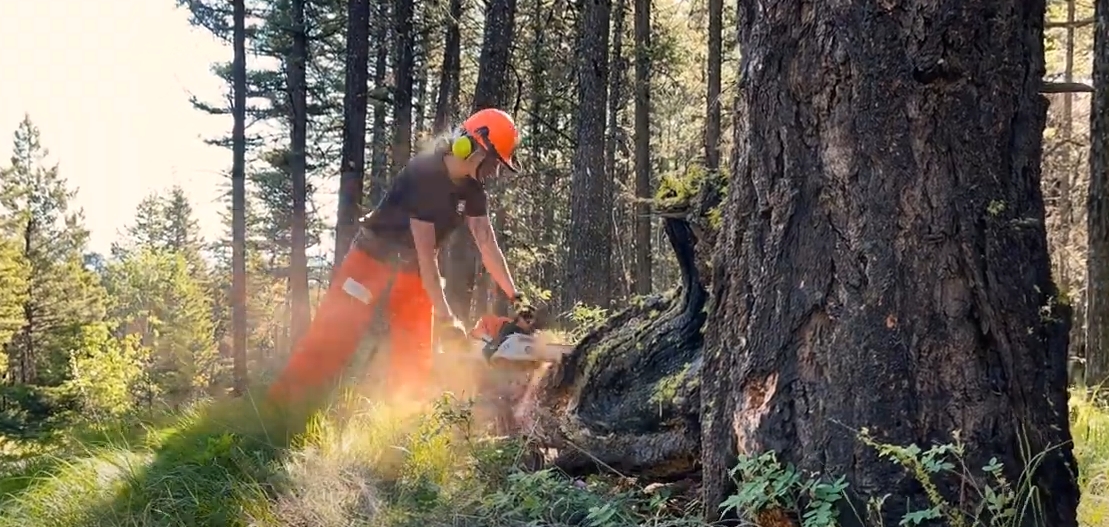AT A TIME WHEN CLIMATE CHANGE RAMIFICATIONS AND WILDFIRE THREATS ARE INCREASINGLY URGENT, two significant philanthropic gifts are empowering researchers at TRU to explore innovative, community-based solutions. These donations—$75,000 from Wawanesa Insurance and $100,000 from an anonymous donor—are not only advancing critical academic research but also positioning TRU as a national leader in sustainability and collaboration.
The Wawanesa Insurance Wildfire Community Resilience Research grant was awarded to Drs. Will Garrett-Petts and Cheryl Gladu, as part of TRU’s Community and Cultural Mapping Research Group, to identify what motivates community and neighbourhood uptake on FireSmartTM principles. “As a leading Canadian owned and operated mutual insurer, we see the growing impact wildfires are having across our country,” said Kimberly Palatnick, senior vice-president and chief personal lines officer at Wawanesa. “Prevention is key to reducing risk, and we’re committed to backing efforts that build safer, more resilient communities.”
The study brings together a team of community and academic partners, including municipal staff, arts and culture organizations, TRU faculty, community researchers and university students to address the crucial issue of wildfire mitigation and the awareness gap regarding FireSmart Canada programming. FireSmart programs educate the Canadian public on preventative measures that protect homes from wildfire.
“Understanding and addressing the awareness gap is crucial for increasing participation in wildfire mitigation—and is, we argue, most acute for smaller populations,” said Garrett-Petts.
This commitment to interdisciplinary research and community collaboration is echoed in a second major gift: a $100,000 donation from an anonymous donor to establish the Blair Climate Change Research Initiative at TRU. The initiative is supporting the work of Dr. Courtney Mason, TRU professor and Canada Research Chair in Rural Livelihoods and Sustainable Communities.
Mason’s two-year research project, “Parks as climate resilience, reconciliation and Indigenous- led conservation”, will increase understanding of how parks can minimize risks to local ecosystems, foster socio-economic opportunities and manage climate-related environmental change.
“With federal, provincial and Indigenous governments currently working together to massively expand park systems throughout the country, protected areas led by Indigenous communities have now become a beacon of hope for natural climate solutions,” said Mason.

Dr. Joel Wood is an associate professor of economics at TRU and co-lead on the project.
“It is great to see support for a project that brings together researchers from different backgrounds across the TRU campus to study such an important topic related to climate change.
This funding support is critical for starting the project and will be key to securing additional research grants to expand its scope,” he said.
The project team involves cross-discipline collaboration and includes TRU faculty from education, social work, tourism and natural resource science.
For the donor, the gift represents more than financial support—it’s a personal investment in a sustainable future.
“I’m very concerned about what’s happening with our climate, and I want to do something that might make a difference,” the donor said. “I like the idea of getting people from different perspectives together because I know the science is important, but changing people’s attitudes is also important. To do that, psychology, sociology, science and all the parts have to come together.”
Both projects reflect TRU’s commitment to addressing complex environmental issues through interdisciplinary, community-focused research while demonstrating how donor support drives impact far beyond the university’s campus.
